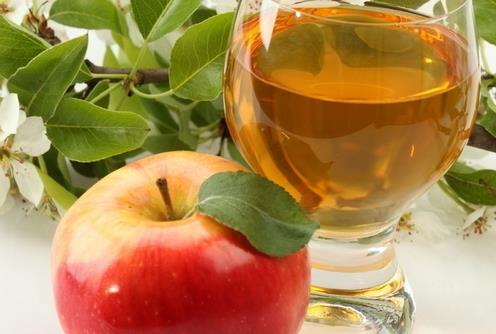When summer arrives, parents are reluctant to allow their children to drink all kinds of beverages outside, so that children can drink some freshly squeezed juice. Juice is healthier than drink and better than boiled water, so many parents are willing to let children drink fruit juice, but be careful not to make fun of it. Preschool children who drink too much juice can cause diarrhea.
"Yes, too much juice can cause diarrhea. This is because many fruit juices contain sorbitol. When there is excess sorbitol, the body will try to dilute it by pulling water. This is why prune juice can prevent constipation. Sorbitol is also quite high in apples, pears, peaches, and cherry juice,†said nutrition expert Frank Greer.

Limit your child's (12 months or more) daily juice volume to within 3/4 cup (170g). Children over 7 years old can drink 230-340g a day. Drinking too much fruit juice in addition to causing the child's stomach discomfort, will also reduce his interest in healthy foods, and even lead to tooth decay. In addition, pediatricians do not recommend babies less than 12 months to drink juice.
Frank Greer stressed that your child needs two fruits a day. If one of them is a glass of juice, another suggestion is a piece of fresh fruit, which will provide extra fiber and nutrition. In addition, diluting juice is also a good method. However, it is best to use boiled water instead of between meals.
And now many parents let their children drink fresh fruit juice directly in order to allow them to consume enough trace elements. This is actually unscientific. Because of the juice we squeezed ourselves, we only left fruit slag, we didn't add ice and we didn't add water. Three or five fruits could squeeze out a glass of juice. Allowing a child to have a glass of fresh juice is equivalent to allowing the child to eat three or five fruits at a time, and these juices also contain a lot of sugars. Excess sugar will increase the osmotic pressure of the child's intestine and cause irritation to the intestine; secondly Because fruit juice is rich in fructose, excessive intake can affect the body's absorption of copper. Trace element copper is an integral part of many enzymes in the body and it is involved in iron metabolism in the body, so lack of copper can also cause anemia. However, for children in China, the main problem with juice is that the calories are too high. Due to the generally high sugar content of fruit juice drinks that children in China are currently exposed to, it will bring about high calories. For some children, enough calories will cause the child's appetite to decline, affecting the normal diet.
In addition, in order to seek economic benefits faster now, the fruit grown is not naturally mature, but uses artificial means to make its color more mature. Most of the artificial colors are used, and the damage of artificial colors to the human body, especially children, is very serious. In 2008, researchers from the University of Southampton in the United Kingdom surveyed 100 children and found that synthetic pigments can affect children’s mental development. Children who often drink fruit juice and drink less water often suffer from loss of appetite, hyperactiveness, spontaneity, and height and weight. Moreover, excessive artificial pigments enter the children's body and are easily deposited on their undeveloped digestive tract mucosa, causing loss of appetite and indigestion, interfering with the functions of various enzymes in the body, and causing adverse effects on metabolism and physical development. It is understandable for parents to let their children supplement trace elements, but too much for children to drink fresh juice will also have negative effects on children, and it may not be worth the benefit in the long run.
Conclusion: It is understandable for parents to allow children to supplement trace elements, but letting children supplement micronutrients may not be the way to drink freshly squeezed juice. In fact, letting children pick up fruits themselves is better than drinking freshly squeezed juices. Because in the extraction of juice, we often cut the peel, directly squeezed with pulp, in fact, easy to lose a lot of vitamins. While squeezing juice, the fruit cells are squeezed and destroyed, it is easy to lose a lot of vitamins, so that most of the extracted juice is sugar, which is contrary to our original intention of allowing children to add trace elements.
Zhejiang Industrial Group Co., Ltd. , https://www.xingyeseafood.com